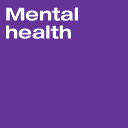Drug
companies have deliberately suppressed evidence that many antidepressants
are unsuitable or even dangerous for children, according to psychiatrists
and child health experts.
Researchers uncovered unpublished data about clinical trials of the
most popular antidepressants on the market, known as selective serotonin
re-uptake inhibitors (SSRIs), which raise serious doubts about prescribing
them to children.
Published studies have so far indicated that the benefits have
outweighed risks for all five drugs studied - Prozac, the brand name for
the drug fluoxetine, paroxetine, sertraline, citalopram, and venlafaxine.
But the review published today in medical journal the Lancet showed
this was true of only one, the leading brand, Prozac. The others at best
were not proven to help children and at worst linked to an increased risk
of suicide or suicidal thoughts.
A separate editorial in the Lancet added that an internal memo from
drug giant GlaxoSmithKline, the makers of paroxetine, had demonstrated how
it "sought to manipulate the results of published research".
It said: "The story of research into SSRI use in childhood depression
is one of confusion, manipulation, and institutional failure. In a global
medical culture where evidence-based practice is seen as the gold standard
for care, these failings are a disaster."
The six psychiatrists and child health experts who carried out the
research also suggested that negative clinical information about the drugs
had been deliberately withheld.
The researchers obtained information about the unpublished clinical
trials from the government's committee for the safety of medicines, which
has access to confidential data. But the pharmaceutical companies involved
refused every request for access to their unpublished data.
The researchers, led by Dr Craig Whittingdon from University College
London, wrote: "We understand that some trials might have been submitted
for publication, and that negative results could be more difficult to get
published.
"Nevertheless, the possibility remains that researchers writing these
reports might not have been able to disclose the findings from negative
unpublished trials."
The researchers warned that the drug companies attitude risked
compromising the guidelines issued by the National Institute for Clinical
Excellence (Nice), which were underpinned by evidence published in
peer-reviewed journals. Although Nice accepted submissions about
non-published data, this was only done on the understanding that the
information was publicly available.
The researchers wrote: "Drug sponsors who withhold trial data (or do
not make full trial reports available) undermine the guideline programme,
which can ultimately lead to recommendations for treatments that are
ineffective, cause harm, or both."
Paul Corry, the head of policy and campaigns at the mental health
charity Rethink, said the pharmaceutical industry, patient groups and
regulators must be "open, honest and transparent with each other about
people's real experience of using [SSRIs]."
He added: "Only when everyone - including children and their carers -
has access to all the information, can they exercise informed choice about
the medicines they use."
The unpublished data examined by the researchers included information
from clinical trials as well as findings not included in the published
studies.
In the case of paroxetine, citalopram and venlafaxine there was clear
evidence of a small raised risk of suicide or suicidal thoughts. A weak
suicidal association with sertraline was also identified.
For none of these drugs was there evidence of sufficient benefit to
outweigh the risks.
The UK committee on safety of medicines last year banned the treatment
of childhood depression with any SSRI except Prozac. But so far the
government department controlling food and drug administration in the
United States has not taken action over the drugs.




